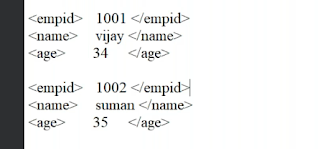Mastering SAP ABAP Interfaces: From Definition to Implementation
Interfaces in SAP ABAP :-
- Interfaces provide a standard way to define methods that can be used across different classes.
- In Interface all methods are public by default.
- In Interface all methods are abstract methods ( i.e. There is only definition, no implementation ).
Difference between Abstract Classes and Interfaces :-
1. Abstract Class :-
- In Abstract class, we have at least one abstract method, others can be non-abstract methods.
- Methods visibility can be Public, Private and Protected.
- We need to redefine the abstract method in to sub classes to perform the implementation in Sub class
- Multiple Inheritance is not possible.
Important Point :-
- We can not redefine a static method.
2. Interfaces :-
- All methods are abstract methods in Interface.
- All methods are public.
- There is no need to click on the redefine button ( redefine button is disabled ), we can write the logic in class by double.
- Multiple Inheritance is possible.
- let’s take a requirement, where we create a interface with one method and then, we will implement that Interface in another class.
- Our requirement is to display Sales Order Details from VBAK table on the basis of Sales Document Number.
How to create a Interface in Usual ABAP / Global Class (SE24 ) ?
-
Step 1 :- Go to SE24 transaction code.
-
Step 2 :- Give a name to the interface and click on create button.
-
Step 3 :- A popup screen will appear, select the Interface radio button.
- Press Enter.
-
Step 4 :- Provide a description for the interface.
-
Step 5 :- Our Interface Screen will appear.
-
Step 6 :- Here we will give the name of our method.
- Note :- You can see in the above diagram that Visibility option is not present in case of Interface.
-
Click on Parameters and provide the importing and exporting parameters.
-
Save and activate the interface.
-
Step 7 :- Now, we need to implement the Interface in a class, So create a class from SE24 transaction code.
-
Step 8 :- click on create button and select Class radio button.
- Press enter.
-
Step 9 :- Select the Interface tab.
-
Step 10 :- Fill the details as shown below.
- Now click on Methods tab, you can see that the Method of interface is already assigned here.
-
Step 11 :- Click on source code and write the logic.
- Activate the class.
Execute the Class :-
-
Press F8 to execute the class.
-
Press F8.
- You can see it, is perfectly working.
Let’s achieve the above same to same requirement using local classes and Interfaces through ABAP Editor ( SE38 ).
Implementing Interface Using Program in ABAP :-
Code :-
*&---------------------------------------------------------------------*
*& Report ZAR_INTERFACE_IMPLEMENT
*&---------------------------------------------------------------------*
*&
*&---------------------------------------------------------------------*
REPORT ZAR_INTERFACE_IMPLEMENT.
DATA : perdat type erdat,
perzet type erzet,
pernam type ernam,
pvbtyp type vbtypl.
PARAMETERS : p_vbeln type vbeln_va.
INTERFACE Sales_Order.
METHODS DISPLAY IMPORTING pvbeln type vbeln_va
EXPORTING perdat type erdat
perzet type erzet
pernam type ernam
pvbtyp type vbtypl.
ENDINTERFACE.
CLASS Sales_Order_IMPLEMENTATION DEFINITION.
PUBLIC SECTION.
INTERFACES Sales_Order.
ENDCLASS.
CLASS Sales_Order_IMPLEMENTATION IMPLEMENTATION.
Method Sales_Order~DISPLAY.
SELECT single erdat erzet ernam vbtyp
from vbak into ( perdat, perzet, pernam, pvbtyp ).
ENDMETHOD.
ENDCLASS.
START-OF-SELECTION.
DATA(lo_object) = new Sales_Order_IMPLEMENTATION( ).
lo_object->Sales_Order~DISPLAY( EXPORTING pvbeln = p_vbeln
IMPORTING perdat = perdat
perzet = perzet
pernam = pernam
pvbtyp = pvbtyp ).
WRITE :/ perdat, perzet, pernam, pvbtyp.
*&------------------------------------------------------------------------
*&End of Program
*&--------------------------------------------------------------
Execute the Code :-
- Press F8.

















.png)

.png)
Comments
Post a Comment